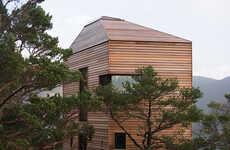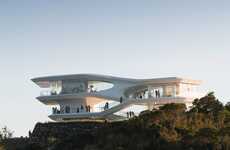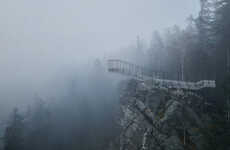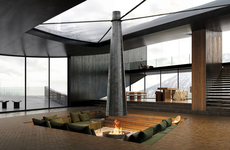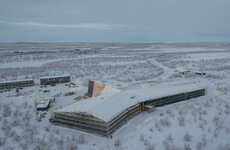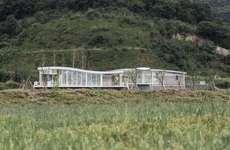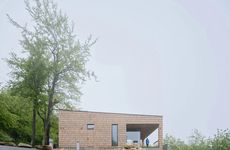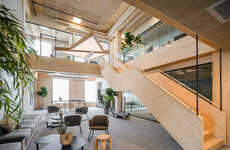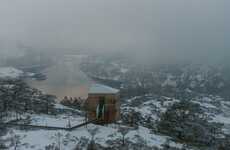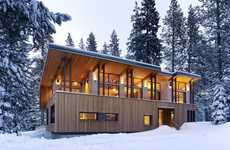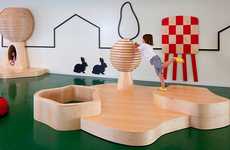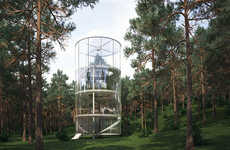
The Gullesfjord Weight Control Station Lies in an Untouched Park
Sarah Robson — June 17, 2012 — Art & Design
The Gullesfjord weight control station was built by JVA. This multicolored building lies on the border of beautiful and unharmed national parks in Gullesfjordbotn, Norway. This building is a truck inspection station, and was built because there will be a huge increase in heavy load transportation to this area in Norway. It is the first completed project from a 2007 feasibility study that will soon include a gas station, coffee shop, bus traffic terminal and tourist facilities.
The most unique aspect about this facility is its integration into the mountain side. The building’s back end and the grass-covered roof blend into the alpine terrain, and the front has been designed with vibrant colors that stand out against the snowy mountains. Behind this functional facility lies an incomparable landscape that is fit for a postcard.
The most unique aspect about this facility is its integration into the mountain side. The building’s back end and the grass-covered roof blend into the alpine terrain, and the front has been designed with vibrant colors that stand out against the snowy mountains. Behind this functional facility lies an incomparable landscape that is fit for a postcard.
Trend Themes
1. Mountain-mimicking Architecture - There is an opportunity to explore sustainable architecture that blends structures into natural settings and positively impacts the environment while maintaining functionality.
2. Integrated Infrastructure - There is potential for multi-use facilities that serve both tourists and local communities, combining necessary structures with social and retail spaces.
3. Eco-tourism Development - There is an opportunity for sustainable tourism development that highlights and preserves natural surroundings and provides necessary infrastructure for tourists.
Industry Implications
1. Architecture - Architects can explore sustainable designs that integrate buildings seamlessly into natural surroundings, benefiting both the environment and building functionality.
2. Tourism - The tourism industry can consider sustainable development that preserves natural surroundings while providing necessary infrastructure to support visitors, creating unique and attractive destinations.
3. Transportation - The transportation industry can incorporate more weight control stations into transportation routes, ensuring the safety of heavy loads and maintaining infrastructure in areas with increased transportation activity.
1.4
Score
Popularity
Activity
Freshness

